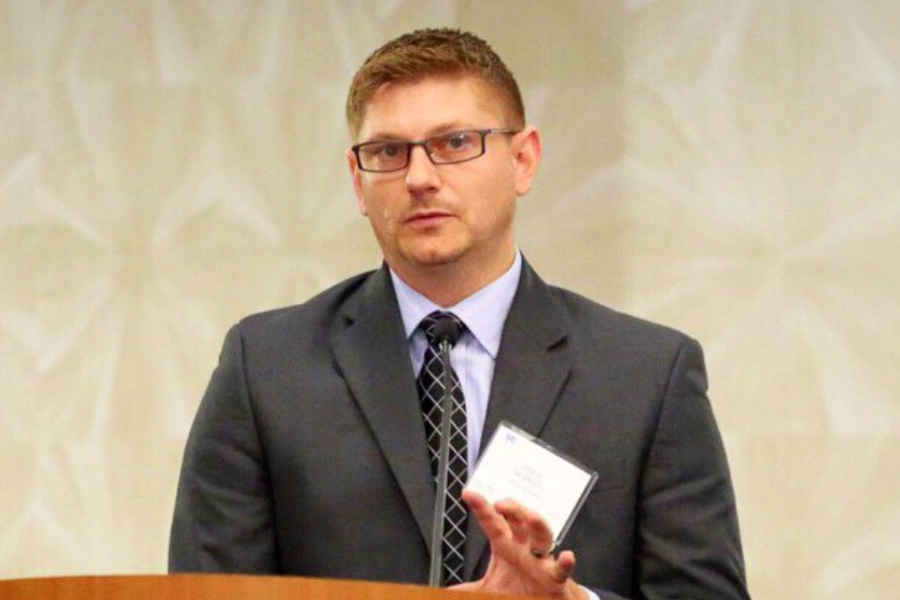Greg Seipelt

"Continue learning to maintain competitive advantage"
College: Law
Degree Program: Cybersecurity Privacy
Degree: Master's
Why FSU?
FSU is nationally recognized as a great institution, and my decision to attend was driven by the unique opportunities that the Juris Master Program in the College of Law offered. By combining the fields of cybersecurity and law, I was able to choose a degree that could advance both my mastery of the cybersecurity field while also building critical understanding of the legal topics that influence and impact the cybersecurity industry.
Motivation to pursue a graduate degree
The landscape of cybersecurity is constantly evolving, and keeping up with the pace of change can be incredibly challenging. Advances in technology drive this change, and for practitioners it is arduous to stay one step ahead of the technology. I chose this graduate program to distinguish myself within the field by adding comprehension of the legal landscape that influences and impacts cybersecurity and vice versa. I believe that continuing education is necessity to stay prepared for the next new discovery or new disruptor.
Importance and/or impact of research and work
Privacy and cybersecurity are critical to the success of both commerce and the social institutions that have been created online and across connected networks. There is not a single internet user who is not directly impacted by the landscape of cybersecurity threats and the risk of privacy concerns. Cybersecurity is a cornerstone of our current and future technology, providing the ability to safely deliver services, engage users, assure transactions, and enable the internet.
Describe an aspect of your military service that is especially memorable or exceptional
I served aboard the fast attack submarine USS Scranton during my active-duty tour and was lucky to experience a great many exceptional situations and memorable events. The most exceptional by far was witnessing firsthand and participating in missions where 135 people purposefully sealed themselves in a steel tube with no windows and headed off at flank speed into the depths of the ocean. This required complete trust that every other person and every other department was executing the job with exact precision to ensure that we all survived an environment that is only rivaled in its peril by outer space.
Tell us how your military service provided skills and experiences that you were able to apply to your graduate studies.
My career in the military taught me many things that prepared me to be successful in a graduate studies program, habits cultivated through the completion of missions critical to national security. Attention to detail stands out as one key habit that my time in the military taught me that is directly applicable to completing graduate level courses, ensuring what is said, what is written, and what is expressed represents the truth and can be proven if challenged.
Career aspirations
I have been working in cybersecurity for fifteen years, and my main career aspiration is to become invaluable and sought after by my peers for my expertise to solve difficult problems. The highest aspiration I have is to be recognized in this industry as a subject-matter expert.
Advice for anyone considering graduate school
My advice for anyone considering graduate school would be to critically assess your current situation versus your desired situation. A graduate degree in a specialized field is a great achievement and can help distinguish you from your peers, but I would caution against picking a specialization too quickly—"know before you go." It is hard to recognize early on in a career what you are truly driven by, and the closer you can align your course of graduate study with your passion, the happier you will be with your choice.
